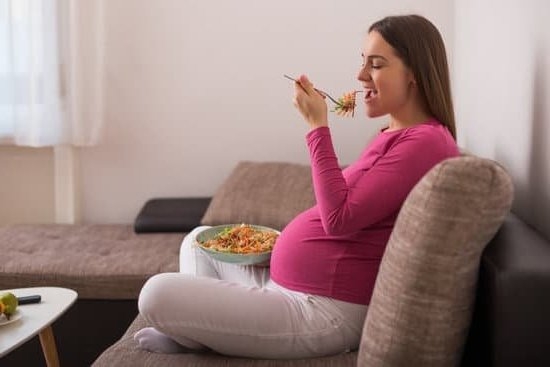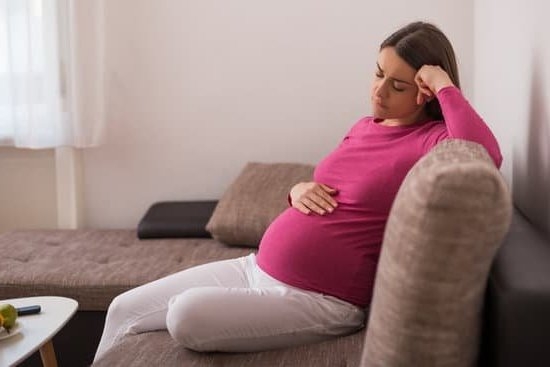Is pregnancy a disability? This question has sparked much debate and discussion in the realms of law, public policy, and workplace accommodations. Understanding the legal definition of disability is crucial in addressing this issue and providing adequate support for pregnant individuals.
In this article, we will delve into the complexities of pregnancy as it relates to disability rights, exploring the legal framework, implications of the Pregnancy Discrimination Act, and the intersection with the Americans with Disabilities Act. We will also examine case studies and workplace challenges faced by pregnant employees, ultimately aiming to provide insight into the future of pregnancy and disability rights.
The legal definition of disability is a fundamental concept that shapes policies, protections, and accommodations for individuals in various contexts. When considering pregnancy within this framework, it sparks important discussions about equality, access to resources, and treatment in professional settings. The significance of understanding how pregnancy is viewed within the scope of disability rights cannot be understated – it impacts societal norms, legal precedents, and individual experiences.
As we explore this complex topic further in the following sections, we will examine the implications of the Pregnancy Discrimination Act with regards to pregnancy-related medical conditions and accommodations. Additionally, we will analyze real-life case studies to gain insight into how these issues manifest in different professional settings.
By doing so, we hope to shed light on the evolving landscape of pregnancy as it pertains to disability rights and pave the way for meaningful dialogue on this crucial issue.
The Pregnancy Discrimination Act and Its Implications
What Is the Pregnancy Discrimination Act
The Pregnancy Discrimination Act (PDA) is a federal law that prohibits discrimination based on pregnancy, childbirth, or related medical conditions. The PDA amended Title VII of the Civil Rights Act of 1964, making it illegal for employers to discriminate against pregnant employees in hiring, firing, promotion, or any other terms and conditions of employment. The PDA also requires employers to treat pregnancy-related conditions the same as other temporary disabilities.
Implications for Pregnant Employees
The PDA has significant implications for pregnant employees in the workplace. It ensures that they are protected from discriminatory actions by their employers and guarantees them reasonable accommodations for pregnancy-related medical conditions. Additionally, under the PDA, an employer cannot refuse to hire a woman because she is pregnant or has a pregnancy-related condition as long as she can perform the major functions of her job.
Challenges and Controversies
Despite the protections offered by the Pregnancy Discrimination Act, there have been challenges and controversies surrounding its implementation. Some argue that although the act prohibits discrimination based on pregnancy, it does not go far enough in providing comprehensive protection for pregnant employees. There have been cases where pregnant employees were denied accommodations or subjected to discriminatory treatment despite the existence of the PDA. This has sparked debates about whether pregnancy should be classified as a disability under existing laws.
Overall, the Pregnancy Discrimination Act plays a crucial role in protecting the rights of pregnant workers in the United States. However, ongoing discussions continue regarding whether additional measures are needed to ensure that pregnant employees receive adequate support and accommodations in the workplace.
Pregnancy-Related Medical Conditions and Accommodations
Pregnancy is often not considered a disability in the traditional sense, but it does bring about a range of medical conditions that may require accommodations in the workplace. The Pregnancy Discrimination Act (PDA) of 1978 protects pregnant employees from discrimination, and it also requires employers to provide reasonable accommodations for pregnancy-related medical conditions. Here are some common pregnancy-related medical conditions and the possible accommodations that may be needed:
- Nausea and vomiting: It is common for pregnant women to experience nausea and vomiting, especially during the first trimester. Employers can provide flexible work hours or telecommuting options to accommodate this condition.
- Fatigue: Pregnancy often causes fatigue due to hormonal changes and increased physical demands on the body. Accommodations such as additional breaks, a comfortable seating arrangement, or reduced physical tasks can be helpful for pregnant employees.
- Gestational diabetes: Some women develop gestational diabetes during pregnancy, which may require dietary modifications and blood sugar monitoring. Employers can provide access to healthy snacks, scheduling flexibility for meal breaks, or even a private area for blood sugar testing.
The goal of providing these accommodations is to ensure that pregnant employees can continue working safely and comfortably throughout their pregnancies. This not only benefits the employee but also helps in retaining valuable talent within the organization.
It’s important for employers to engage in open communication with their pregnant employees to determine what specific accommodations they may need based on their unique medical conditions. This proactive approach can help create a supportive work environment for pregnant individuals, contributing to their overall well-being and job satisfaction.
The Intersection of Pregnancy and the Americans With Disabilities Act
The Americans with Disabilities Act (ADA) is a federal law that prohibits discrimination against individuals with disabilities in various areas, including employment. The ADA defines a disability as a physical or mental impairment that substantially limits one or more major life activities. While pregnancy itself is not considered a disability under the ADA, the law does provide protection for pregnant employees who experience pregnancy-related medical conditions that may qualify as disabilities.
Under the ADA, employers are required to provide reasonable accommodations to qualified employees with disabilities, unless doing so would cause undue hardship to the employer. This means that if a pregnant employee develops a pregnancy-related medical condition that meets the definition of a disability under the ADA, they may be entitled to reasonable accommodations in the workplace. These accommodations could include modified work duties, adjustments to work schedules, or temporary transfers to less physically demanding positions.
It’s important for employers to understand their obligations under the ADA when it comes to accommodating pregnant employees with disabilities. Failing to provide reasonable accommodations for employees with pregnancy-related disabilities could result in claims of discrimination and legal action.
Employers should engage in an interactive process with pregnant employees to determine what accommodations may be necessary and feasible. By doing so, they can ensure compliance with the ADA and create a more inclusive and supportive work environment for all employees, regardless of their pregnancy status.
- Employers must provide reasonable accommodations for pregnant employees with disabilities
- Pregnancy-related medical conditions that meet the definition of a disability under the ADA are eligible for accommodations
- The interactive process between employers and pregnant employees is key to determining appropriate accommodations
Case Studies
Case Study 1: Beth’s Story
Beth, a marketing executive, was thrilled when she found out she was pregnant. However, her excitement turned to concern when she realized that her job involved frequent travel and long hours. She knew that her pregnancy would make it difficult for her to keep up with the demands of her position.
When she approached her employer about making accommodations for her pregnancy, she was met with resistance. Beth’s employer argued that pregnancy is not a disability and therefore they were not required to provide any accommodations.
Case Study 2: Sarah’s Experience
Sarah worked as a graphic designer at a small design firm and was well into her second trimester when she started experiencing complications related to her pregnancy. Her doctor advised her to reduce the number of hours she worked and avoid lifting heavy objects. When Sarah requested these accommodations from her employer, they initially refused, citing that they were not obligated to make any changes for a temporary condition such as pregnancy.
Case Study 3: Mia’s Battle for Equal Treatment
Mia, a software developer, discovered that she was pregnant shortly after being promoted at work. She was determined to continue excelling in her career despite the challenges of being pregnant. When Mia asked for adjustments in her schedule and workload due to fatigue and morning sickness, she faced pushback from management who claimed that pregnancy did not qualify as a disability under the law.
These case studies highlight the real struggles that pregnant employees face in the workplace when requesting accommodations related to their pregnancy. Despite the Pregnancy Discrimination Act offering some protection against discrimination based on pregnancy, many employers still fail to recognize the impact of pregnancy on an employee’s ability to perform their job duties effectively. This raises the question: is pregnancy a disability?
The Debate
Pregnancy is often seen by many as a temporary condition rather than a disability. However, the debate on whether pregnancy can be considered a temporary disability has been ongoing for years.
The issue arises from the fact that pregnancy does not always fit neatly into the legal definition of disability. While pregnancy may not fit the traditional perception of disability, it is important to consider the physical and medical aspects of pregnancy that can affect a woman’s ability to carry out certain tasks in the workplace.
The key argument in considering pregnancy as a temporary disability is the impact it can have on a woman’s physical and mental well-being. Pregnancy can bring about various medical conditions such as gestational diabetes, preeclampsia, and severe morning sickness (hyperemesis gravidarum) that may limit a woman’s ability to perform certain job functions. In such cases, accommodations in the workplace may be necessary for pregnant employees.
According to data from the Centers for Disease Control and Prevention (CDC), approximately 2-10% of pregnancies are affected by gestational diabetes, while preeclampsia impacts about 2-8% of pregnancies. Additionally, hyperemesis gravidarum affects about 1-3% of pregnancies. These statistics highlight the prevalence of pregnancy-related medical conditions that can potentially hinder a woman’s ability to work without reasonable accommodations.
| Pregnancy-Related Medical Condition | Prevalence |
|---|---|
| Gestational Diabetes | 2-10% |
| Preeclampsia | 2-8% |
| Hyperemesis Gravidarum | 1-3% |
Navigating Workplace Challenges for Pregnant Employees
Pregnancy can present various challenges for women in the workplace, as they may require accommodations and face potential discrimination. Employers must navigate these challenges to ensure that pregnant employees are treated fairly and provided with the necessary support. The Pregnancy Discrimination Act (PDA) prohibits discrimination based on pregnancy, childbirth, or related medical conditions, and requires employers to treat pregnant employees the same as other employees who are similar in their ability or inability to work.
One of the key challenges that pregnant employees may face is obtaining necessary accommodations for pregnancy-related medical conditions. For example, a pregnant employee may need more frequent breaks, a modified work schedule, or a temporary transfer to lighter duty work.
It is important for employers to engage in an interactive process with the employee to determine what accommodations are appropriate and feasible. This process involves communication between the employer and employee to find effective solutions that allow the employee to continue working while meeting their medical needs.
Additionally, pregnant employees may encounter discriminatory treatment in the workplace, such as being denied promotions or opportunities for advancement due to their pregnancy. Employers should be vigilant in addressing any discriminatory behavior and ensuring that pregnant employees have equal access to opportunities within the company. Providing training for managers and supervisors on pregnancy discrimination and accommodation requirements can help prevent discriminatory practices and create a supportive work environment for all employees.
Overall, navigating workplace challenges for pregnant employees requires employers to understand their legal obligations under the PDA and engage in proactive measures to support pregnant workers. By providing necessary accommodations and preventing discrimination, employers can create an inclusive workplace where pregnancy is not viewed as a disability but rather as a normal part of life that requires support and understanding.
Conclusion
In conclusion, the future of pregnancy and disability rights is a complex and evolving landscape. The question of whether pregnancy is considered a disability under the law has been the subject of ongoing debate and legal interpretation. The Pregnancy Discrimination Act of 1978 was a significant step forward in addressing discrimination against pregnant employees, but there are still gaps in protection for pregnant individuals who may experience medical conditions related to their pregnancy.
As explored in this article, the intersection of pregnancy and the Americans with Disabilities Act (ADA) further complicates the issue. While pregnancy itself is not considered a disability under the ADA, pregnant individuals may be entitled to accommodations if they experience medical conditions that qualify as disabilities under the ADA. This raises important questions about how to effectively support pregnant employees in the workplace and ensure their rights are upheld.
Moving forward, it is crucial for employers, lawmakers, and advocates to continue advocating for policies and practices that protect the rights of pregnant individuals in the workplace. This includes fostering an environment that supports accommodations for pregnancy-related medical conditions and ensuring that pregnant employees are not subjected to discrimination or unfair treatment.
By addressing these challenges, we can work towards a future where pregnancy is recognized as a unique experience that deserves proper support and protection within the realm of disability rights.
Frequently Asked Questions
Does Pregnancy Count as a Disability?
Pregnancy itself is not considered a disability, but some pregnancy-related conditions may be classified as disabilities under the Americans with Disabilities Act (ADA). This means that pregnant employees are entitled to reasonable accommodations at work if they have pregnancy-related disabilities.
What Happens if You Can’t Work While Pregnant?
If an individual is unable to work due to pregnancy-related complications, they may be eligible for disability benefits through their employer’s short-term disability insurance or state temporary disability program. This can provide partial wage replacement during their time away from work.
What Are the Examples of Pregnancy Disability?
Examples of pregnancy disabilities could include conditions such as gestational diabetes, preeclampsia, severe morning sickness (hyperemesis gravidarum), or any other medical condition related to the pregnancy that substantially limits a woman’s ability to perform major life activities. These conditions may qualify for accommodations under the ADA.

Welcome to my fertility blog. This is a space where I will be sharing my experiences as I navigate through the world of fertility treatments, as well as provide information and resources about fertility and pregnancy.





